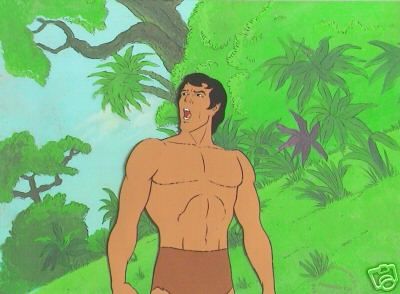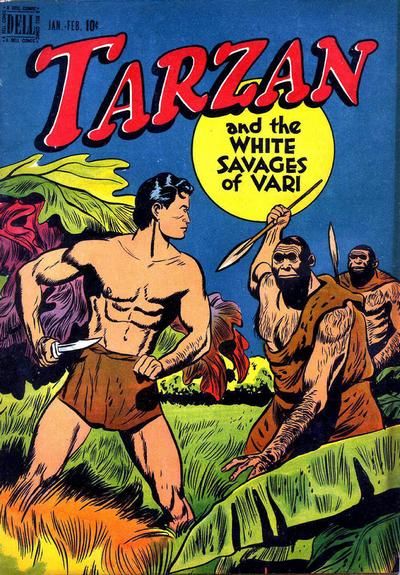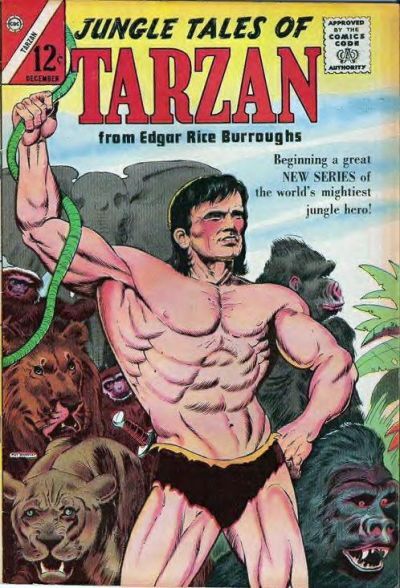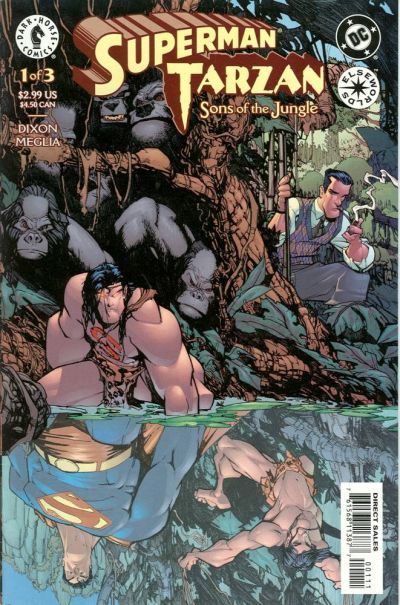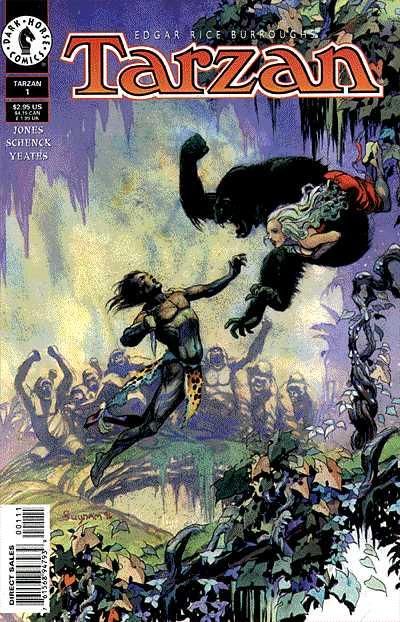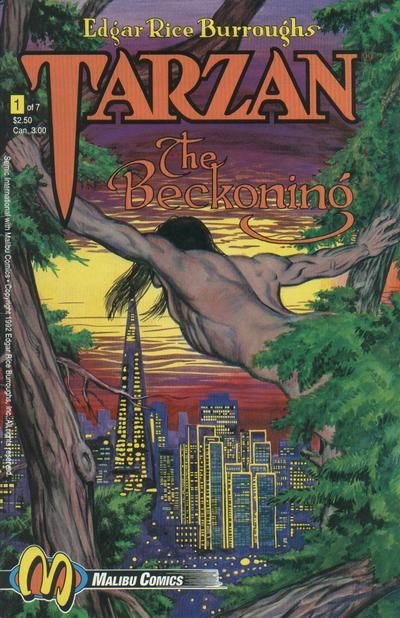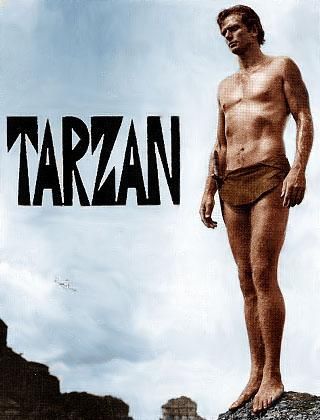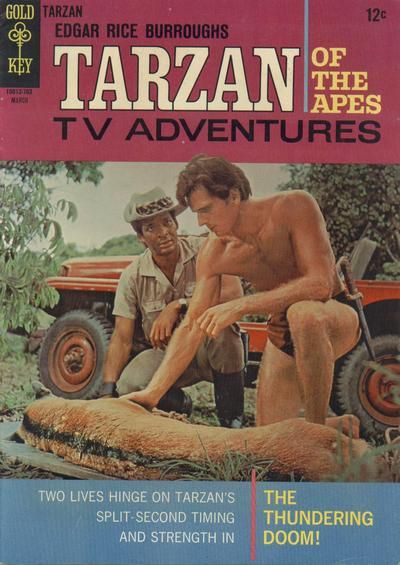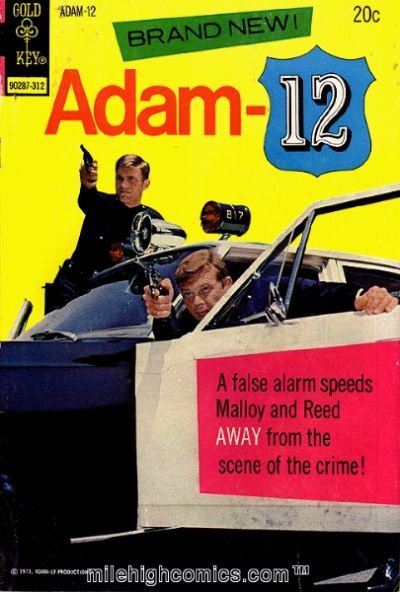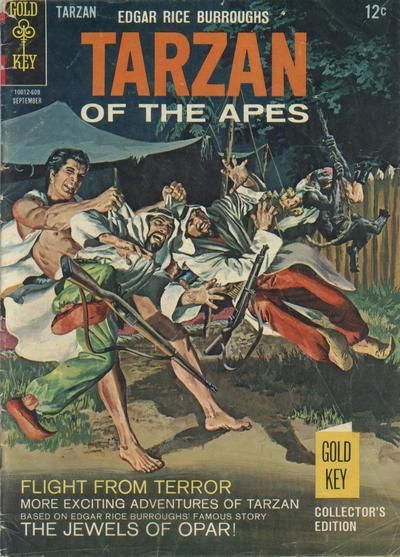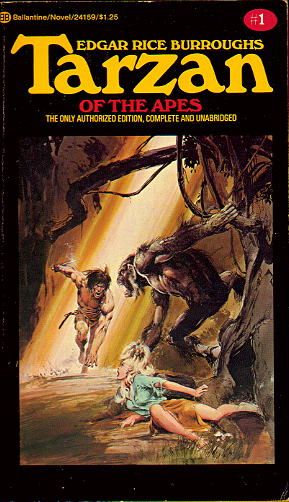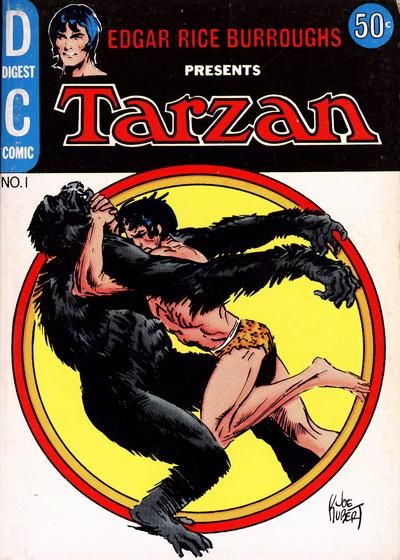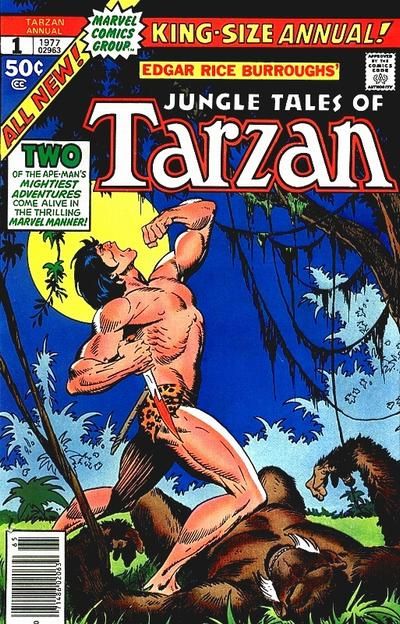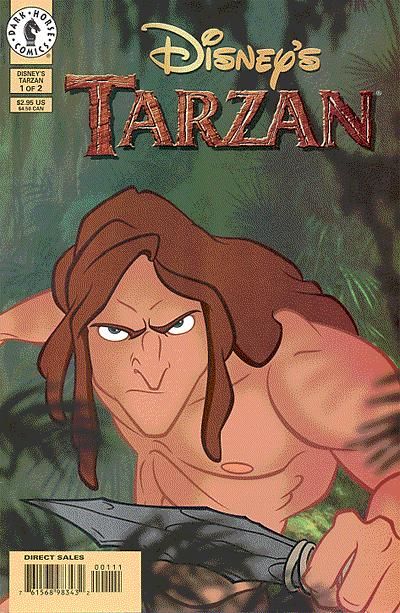This is turning into one of those things where each idea sort of links to the next.
I started a couple of weeks ago with the Lone Ranger. That column got me thinking just generally about superhero prototypes, which led to last week's entry. Researching last week's column, looking at Tarzan as a possible Superman prototype, I found there was so much more that I ended up deciding to devote the entirety of this week and next week to the Jungle Lord and his various knockoffs. Being a pulp guy and a Wold Newton guy as well as a comics guy, I thought I was well up on my Edgar Rice Burroughs and Tarzan lore, but I found out all sorts of things I didn't know.
Just surfing around on the Grand Comics Database I found over eighty comics listed as Tarzan titles, and that's not even counting entries for Korak, Son of Tarzan. Of those no less than thirty-six were done here in the States, from seven different publishers, and that's when I'm counting Dell, Western and Gold Key as a single entity. (I know someone will ask. To save you looking it up: in addition to Dell/Western/Whitman, there have been Tarzan comics from DC, Marvel, Charlton, Dark Horse, Blackthorne, and Malibu.)
Sure, some of them were mini-series and reprints and stuff like that, but... still. That's a lot of Tarzan comics, even leaving out the newspaper strip from Hal Foster and then Burne Hogarth that was such a powerful influence on so many Golden Age artists, and ignoring Korak and all the other knockoffs for the moment. Any way you use to count up his appearances, the guy's a mega-star.
Clearly, Tarzan's a prototype Superman; there are such extraordinary parallels that when DC and Dark Horse did their Elseworlds crossover thing a couple of years back where baby Kal-El lands in in the jungle and ends up being Super-Tarzan, the amazing thing is how few changes were necessary in the original Tarzan story to make it a Superman story.
This is not to discount the achievement of Siegel and Shuster and I don't for a moment imply there was any direct theft going on. They borrowed more from Philip Wylie and Gladiator, really... but I can certainly see them, at least in part, hitting on the idea of taking Tarzan's outsider origin and urbanizing it into Superman's, the same way Finger and Kane took the Zorro idea and urbanized it into Batman.
But there's more going on with Tarzan. I think you really can call him the first modern honest-to-God super hero (as opposed to, say, costumed crimefighter; in practical terms, Tarzan has super powers) and his extraordinary success reflects that. For almost a hundred years now, the ape-man has been present in one form of popular fiction or another. He and his legion of imitators were a constant presence in comics until very recently, when Disney got hold of him; the last Dark Horse original solo entry I can find was Tarzan: Rivers of Blood, from 2000. (In fairness, that tanked so badly Dark Horse didn't bother to finish it, apparently; but I'll come back to that part next week.)
Why the extraordinary staying power?
What is it that makes Tarzan cool for generation after generation?
I don't have a good answer for that. But if we look back at what's worked we might find a plausible hypothesis, and in the process maybe even make a couple of educated guesses as to why the ape-man can't get any real traction in the current comics market.
*
My first experience of Tarzan was from television, like most people my age.
I was lucky there -- I got the Ron Ely Tarzan, who was a lot closer in spirit to the original than Johnny Weissmuller. The NBC Tarzan series ran for a couple of seasons back in the late sixties and I was just barely old enough to get into it.
It didn't really lead me anywhere; I enjoyed the show, but unlike, say, the Adam West Batman or the Saturday morning Superman, I didn't really feel the need to follow up on it at the comics rack. I knew there were Tarzan comics out there, but I had seen the show and thought of Tarzan as kind of a jungle cop in a loincloth.
(Which is what the Ely version mostly was. He saved tourists from accidents and fought crime, usually chasing bad guys that fled into the jungle for one reason or another.) I wasn't interested in a comic about Tarzan the Jungle Policeman, any more than I'd have been in a comic about, oh, say.... Adam-12.
(I wrote that line and thought, "wait a minute," and went to check. I am astonished to report that Adam-12 actually had a short-lived comics version, sure enough. Amazing.)
Anyway, I found the Burroughs Tarzan by accident, trading books with a neighbor kid up the street. He had a few of the Gold Key books and somewhere in there were a couple of parts of Russ Manning's adaptation of Tarzan and the Jewels of Opar.
That got me interested. Here, Tarzan actually talked to the apes, they had a whole ape language. "Kree-gah! Tarzan Bundolo!" And this Tarzan was a seriously bad dude, he was kicking ass and taking names, whether it be gorillas or renegade Arabs or Oparian beast-men. Plus there was the whole Lord Greystoke identity, Jane, the Waziri, hidden treasure, lost cities, plot and counter-plot... I could get into this. I remember being disappointed my friend Tip didn't have the whole story. It was such a bitch to get to the end of a Gold Key book and find the hated "To Be Continued," that NEVER happened at Gold Key!
The great gift of the Gold Key experience, though, was this; I learned that there were books, the whole Tarzan thing came from novels by Edgar Rice Burroughs. I have a vague memory of trying to find the Opar book in the library but I don't think I read it then. Distracted by some other find, probably. So many books, so little time. But I filed that away in my little juvenile head for the future.
The future came about three years later, shortly after I entered high school. I'd gotten a five-dollar gift certificate to B.Dalton's Bookstore for my birthday, and as luck would have it, Ballantine had just re-issued the first four Tarzan novels as a boxed set of paperbacks with gorgeous new Neal Adams covers, for $4.95.
(That's right -- five bucks got me the whole set. I'm THAT old.)
Third time lucky. This was when I got hooked good and proper. The first two books, especially -- Tarzan of the Apes and The Return of Tarzan -- have such an incredible narrative drive, they read as though they were written in a white heat. I was sold. It probably helped that I had just discovered the whole Wold Newton thing through Philip Jose Farmer's biography of Doc Savage, and certainly it was the stunning Neal Adams art plastered all over the box that got me to pick it up... but it was the story that sealed the deal.
In the years since then I have read all of Burroughs' Tarzan books and quite a few of the others, Mars, Venus, Pellucidar... but none of them really have the power of the first two Tarzan books. Not John Carter of Mars or Carson of Venus or even Korak, the junior Tarzan -- none of them have the resonance of the original Tarzan story.
Here is the brilliant thing Burroughs did in the first two books. He set it up so that Tarzan is always the superman among normals -- with the apes, his human intelligence always wins the battle for him, and later, among humans, his ape traits set him above regular folks. But the same thing that makes him a superman also sets him apart and condemns him to a life of loneliness. In those first two books, we ache for Tarzan and we're rooting for him. When he meets the lovely Jane Porter and realizes that she can save him from being forever alone, the suspense of the whole thing derives from that: can these two crazy kids make it work? The rollercoaster of the first two books is all about that love story and the various twists and turns and obstacles Tarzan and Jane have to get over. That's what gives it power... Burroughs tapped into something everyone can identify with. Not just the alienation of Tarzan, the feeling of being an outsider, but also the thrill of finding that one person that really, truly, GETS who you are and the joy that comes from NOT being lonely and alienated any more. He dangles that prize in front of Tarzan and then snatches it away, time and again, until the reader is half-crazy with the suspense. Damn it, does Tarzan get his true love or not?
The bad news is, you only get to tell that story once. Once Tarzan and Jane settle down together, that's it; you never get to that peak again, because now Tarzan's not lonely and apart and trying to find his place in the world. He's got Jane and the Greystoke title and a nice estate in Africa and limitless wealth from the treasure vaults in Opar. You just can't get as invested in the ape-man after he solves his basic identity problem.
This is the fatal flaw that almost everyone who's done Tarzan stories after that trips over (and I'd even include Burroughs himself in most of the Tarzan books that followed the first four or five, honestly. The first five, up through Jewels of Opar, you can make the case that it's really one long story, though it's a stretch. But after that, it's mostly just going through the motions.) The happy ending came too soon.
The usual dodge is to tell the story about the other people who come across Tarzan's path, and make it be about them reacting to him and his world.
This works reasonably well as a storytelling hook, and Burroughs used it to great advantage, especially in his novels of Tarzan during World Wars I and II (Tarzan the Untamed and Tarzan and the Foreign Legion, respectively.) Alternatively, you can do what Burroughs himself did in the sixth book, and tell stories filling in the gaps in the ape-man's early years -- when he was still searching, before he met Jane. It's no coincidence that Jungle Tales of Tarzan is probably the most-adapted of the novels to comics.
A great many adaptations just go with the feral ape-man as the hero, they leave the whole Greystoke lineage and Jane out of the picture. I think that's a mistake too, and not only that -- it's the key mistake that all of the knockoff versions make.
This is not to discount the action and adventure and jungle atmosphere and exotic lost cities and so on. But that's just the scenery. The core of the story arc of the first two books is Tarzan having to decide if he is beast or man, and finding out which one Jane truly loves. Skip that, focus just on the jungle pulp adventure, and you can produce something fun, sure... but it's hollow. It's taking the easy way out.
Which is not to say that some of those versions can't be great fun -- I confess to harboring great affection for the Filmation cartoon made in the 70's, those folks at least appeared to have read a Tarzan book at some point --
-- but in the end, none of the sequels or pastiches have the fire of that first single story, the epic that spans the first two Burroughs novels. It's the alienation and the loneliness coming FROM the superior abilities, the search for his place in the world that drives those first two books.... that's what makes Tarzan such a great character. A lot of fans hate the Disney version, and I certainly could have lived without Phil Collins and Rosie O'Donnell, myself -- but I gotta give them props.
They kept the core, they had Jane and the Greystoke heritage and the search for identity. That's what the other jungle lords in pulps and comics since Tarzan are almost always missing.
We'll talk more about this, the ape-man's imitators, his legacy in pop culture, and some thoughts about the way his star seems to have faded in the current comics market, next week. There's just too much to try and cram it all in one. See you then.

